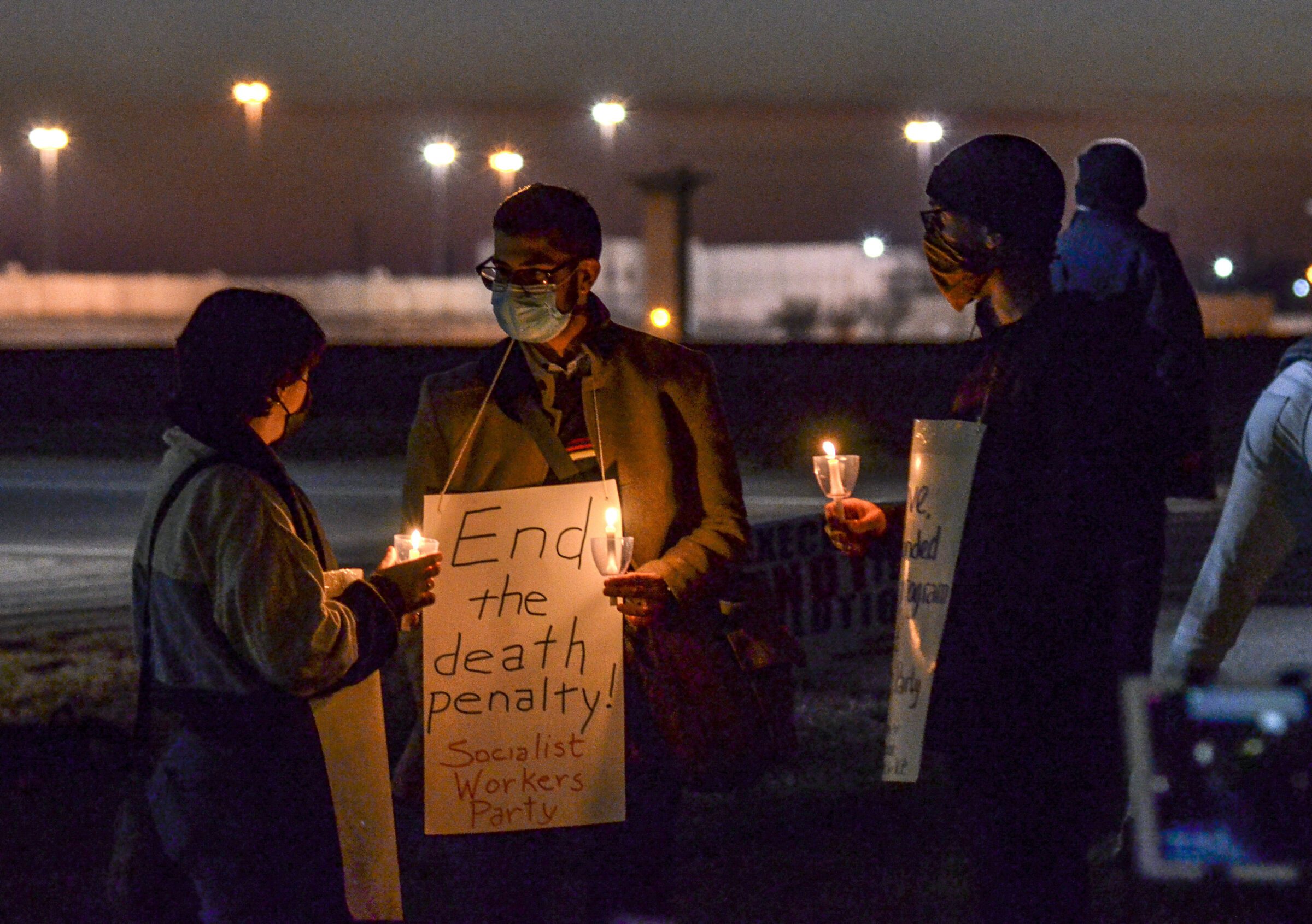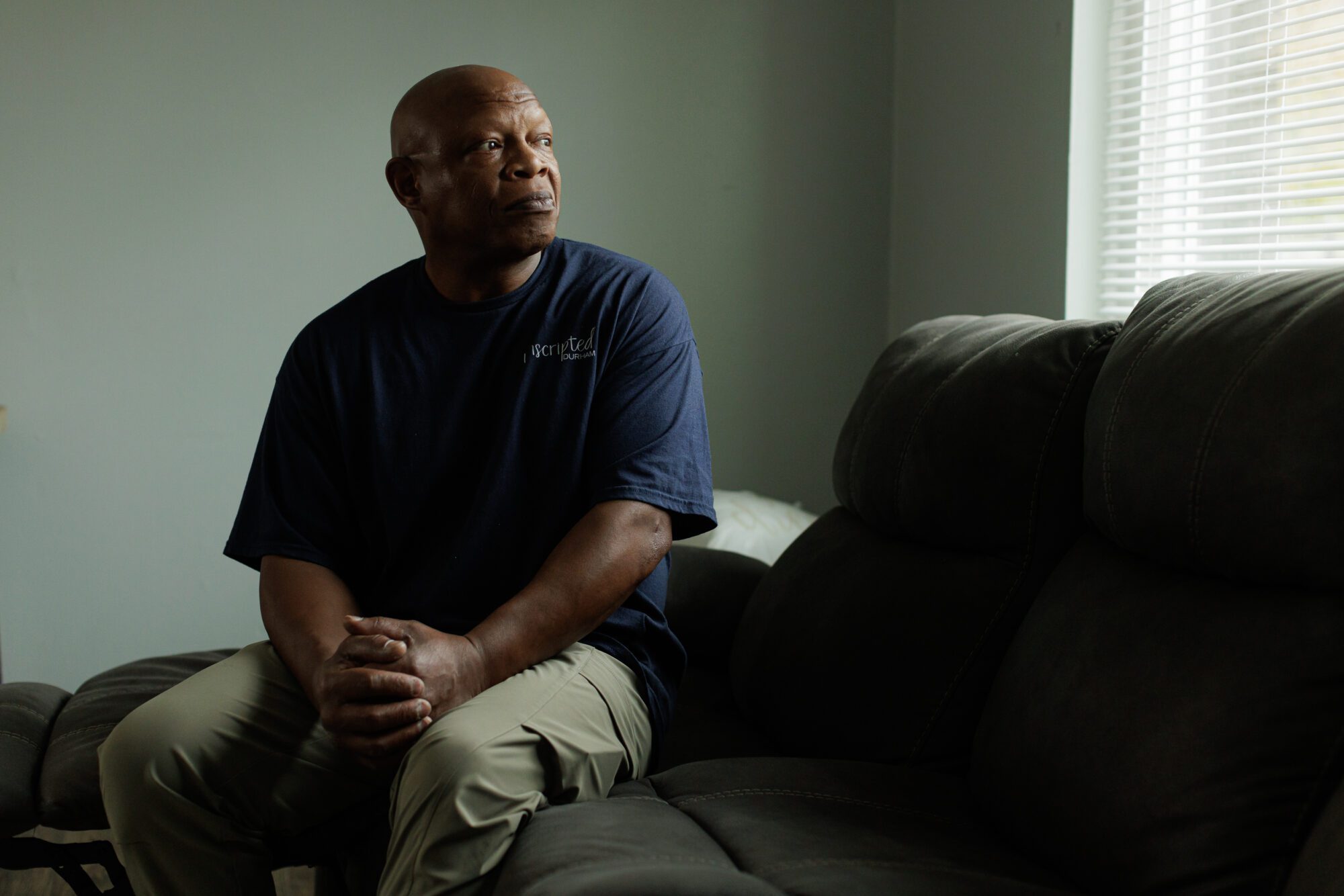Connecticut Could Ban Its Businesses from Helping Carry Out Executions Elsewhere
Connecticut lawmakers are considering legislation to make it illegal to participate in the death penalty, following news that a local company helped fuel a federal execution spree.
| February 19, 2025

After two Connecticut businesses were found to have played a large role in U.S. executions in the past five years, lawmakers are proposing a bill that would make it illegal for state companies to participate in the death penalty. Sponsors of the bill, the first of its kind in the country, hope to inspire other states to enact similar legislation to cut off the supply of drugs and devices used to carry out death sentences.
“Our goal is not even just to have the immediate impact,” state Representative Josh Elliott, one of the bill’s sponsors, told Bolts. “It’s to have a long-term domino-effect impact in showing states that something like this is possible, so that if it turns out that there are manufacturers in other states where the death penalty has been abolished, that they can act on it.”
Elliott’s Senate Bill 430 stipulates that “certain persons who are licensed, registered or doing business in this state shall not manufacture, compound, sell, test, distribute, dispense or supply any drug or medical device for the purpose of executing the death penalty.” Those found in violation would have their business licenses denied or revoked.
The proposal comes as the Trump administration is pushing for more executions and creating new ways for prosecutors to win death sentences, and as many states are restarting executions and experimenting with new methods.
Opponents of capital punishment had succeeded in recent decades in making lethal drugs harder to get, slowing down the pace of executions nationwide, but death penalty states have found new, secretive ways to secure chemicals and equipment to carry out death sentences. And while Connecticut abolished the death penalty in 2012, businesses in the state have been tied to executions elsewhere.
Last year, the comedy news program “Last Week Tonight With John Oliver” reported that Absolute Standards, a chemicals company based in the Connecticut town of Hamden, sold an ingredient key to making the lethal injection drug, pentobarbital, to Trump’s first administration for its use during the federal execution spree beginning in July 2020. Over the course of six months, the federal government executed 13 people at the federal death chamber in Terre Haute, Indiana.
“It was kind of horrifying,” Elliott told Bolts of finding out about the company’s role. Elliott, a Democrat who represents Hamden, was subsequently flooded with calls and emails from people concerned that Connecticut was fueling the death penalty.
Elliott and state Senator Saud Anwar, who is also a bill sponsor, attempted to meet with the owner of Absolute Standards, who ultimately responded in a July 2024 letter declining the meeting and writing, “We have no intention to resume any production or sale of pentobarbital.”
Absolute Standards did not respond to Bolts’ request for comment.
Another Connecticut business has ties to equipment that Alabama has used over the last year in becoming the first state to execute prisoners by suffocating them with nitrogen gas. Since January 2024, Alabama has executed four people with the method, which involves pumping nitrogen into a respirator mask strapped onto the prisoner’s face. The mask, according to federal court documents filed by two of the prisoners while challenging their executions, is made by Allegro Industries, a South Carolina-based industrial respirator manufacturer whose parent company, Walter Surface Technologies, has its U.S. headquarters in Windsor, Connecticut.
In all four nitrogen executions, witnesses reported that the prisoners struggled on the gurney for minutes despite promises from Alabama officials that the method would be quick and humane. Bolts witnessed the execution of Alan Miller in September, reporting that Miller jerked and shook on the gurney as he gasped for air.
Anti-death penalty advocates last year launched a campaign to stop Walter Surface Technologies from allowing Alabama to use the mask but the company hasn’t publicly responded to their claims that it is helping facilitate executions. Proponents of the Connecticut bill to ban local involvement in the death penalty have named the company as proof that the legislation is needed.
Neither Walter Surface Technologies nor Allegro responded to Bolts’ request for comment.
While only Alabama has executed people with nitrogen, other states have approved it as an execution method in recent years. This month, Louisiana approved its own procedure for executing prisoners with nitrogen as it prepares to resume executions in March following a 15-year pause, though it’s unclear which method and equipment they will use.
Opponents of the death penalty say the Connecticut bill is needed because of the state companies who sold equipment and drugs out-of-state. “Unfortunately, in recent years, too many executions around the country have connected straight back to the state,” said Bianca Tylek, executive director of Worth Rises, an advocacy group that helped craft the Connecticut legislation, in a press conference last week. “We need to intervene.”
Last Monday, the legislature’s joint General Law Committee heard testimony in support of the bill. One of the witnesses was Lisa Brown, whose son, Christopher Vialva, was the seventh person executed by the Trump administration. Brown spoke about watching Vialva die by pentobarbital, the drug that was manufactured in part by Absolute Standards. Vialva, she recounted, had tears in his eyes and puffed out his cheeks and appeared to yawn, signs that he was struggling to breathe. His death took 28 minutes.
“During the execution, I realized that I was witnessing the state sanctioned premeditated murder of my son,” Brown told the committee. “I am grateful to Connecticut for banning the death penalty, but it is deeply troubling to me that Connecticut companies are still profiting from it.”
If SB 430 passes, Connecticut would be the first state to cut off the supply of drugs and medical devices used in executions, though the European Union, United Kingdom, and private companies have enacted similar prohibitions. In 2011, the pharmaceutical company Hospira stopped producing sodium thiopental, a barbituate that was used in executions, because officials in Italy, where it was made, barred its use in capital punishment. That same year, the United Kingdom made it illegal to export drugs to the U.S. for executions. Elliott, the Connecticut lawmaker, told Bolts he was motivated by those bans in introducing his bill.
The primary opposition to SB 430 during the hearing came from anti-euthanasia advocates who say that businesses should also be barred from selling for drugs and equipment for assisted suicide.
The bill is expected to come up for a vote in the committee over the next few months, and Elliott hopes that the House will vote on it by the summer. But some in the state’s Democratic leadership have expressed caution so far. House Majority Leader Jason Rojas, a Democrat, told Connecticut Insider that he was worried that the bill would harm companies that make products that could be used in executions but are used for other purposes. “I oppose the death penalty and wouldn’t be opposed to it but want to see what the implications of it are,” he told the publication.
Robin Maher, executive director of the Death Penalty Information Center, a nonpartisan organization that documents capital punishment, said it’s difficult to predict the impact of Connecticut’s bill because death penalty states try to keep the sources of their drugs and devices a secret; at least 16 states have enacted laws that allow them to conceal such information since 2010.
“All of the active death penalty states have shrouded their procedures in secrecy so the public doesn’t have an opportunity to know that information or to ask hard questions about it,” Maher told Bolts.
Elliott said he and the other sponsors of the bill are working with Connecticut’s Department of Consumer Protection, the state agency in charge of business licensure, to make sure it can effectively enforce it.
“We are confident that we’ll be able to pass this bill this year,” said Elliott. “It’s important not only to myself, but it’s important to the families, the loved ones who have gone through circumstances that touch on the death penalty, not only in our state, but around the country as well.”
Sign up and stay up-to-date
Support us
Bolts is a non-profit newsroom that relies on donations, and it takes resources to produce this work. If you appreciate our value, become a monthly donor or make a contribution.




